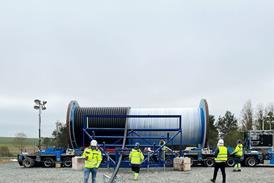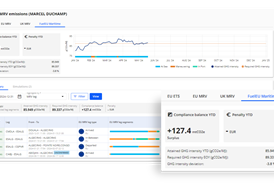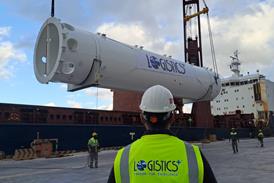June 21 - More countries should follow the lead of the United States, the European Union, Switzerland and Canada in pursuing mutual recognition agreements for air cargo security, says The International Air Cargo Association (TIACA).
The association called the agreements between the European Union, Switzerland and the United States and between the USA and Canada to recognise each other's security regimes as 'welcomed and sensible progress' towards the shared goals of maintaining the highest levels of air cargo security without impeding international air cargo supply chains.
Michael Steen, chairman of TIACA, said: "We strongly support efforts to enhance security of the air cargo supply chain without unduly disrupting vital commercial flows. Mutual recognition of robust security regimes is an important way to further this goal, so we commend the USA, EU, Swiss and Canadian authorities for their recent announcements in this regard. TIACA will continue to support additional efforts to mutually recognise security regimes and to implement global, harmonised standards."
TIACA says the progress made by governments to recognise each other's national air cargo security regimes will eliminate duplication of security controls and the costs and time delays associated with this whilst ensuring strict air cargo safety and security requirements continue to be met consistently.
Speaking to delegates at TIACA's Executive Summit in Moscow, Doug Brittin, Director, Air Cargo at the Transportation Security Administration, said the security threat 'remains high for all of us'. "Our goal, which we know is shared by the industry, is to not lose a plane," he added.
He outlined the work TSA has been doing on advanced air cargo data alongside bodies such as ICAO, the World Customs' Organisation and the Universal Postal Union.
Outlining the status of the Advanced Air Cargo Screening (ACAS) programme, he confirmed the pilot was still ongoing, having started with express carriers a year ago and subsequently expanded to include passenger and cargo carriers as well as freight forwarders. The objective, he said, was to prove data flows and timelines, adding: "Can DHS (U.S. Department of Homeland Security) looking at this data quickly analyse, determine risk and get information on which screening method to use to the proper place at the proper time?"
The message channels and protocols are critical to this, he said. "The key part of this is moving that trusted shipper concept to a data driven analysis. We want to be able to make a determination based on historical data about the shippers plus incorporate the trusted shipper rule sets into ACAS." He urged forwarders to be part of this process, stating: "The sooner the data is transmitted the better … we suggest freight forwarders and carriers conduct active discussions with all parties in the supply chain as soon as possible to help determine the outcome and help design the process overall."
Brittin also recognised the important support industry is giving to further enhancing air cargo security. He said: "Together we have made significant progress in enhancing air cargo security in the past few years and industry has risen to the challenge, both in the all-cargo and the passenger carrier segments. We are moving steadily toward closing all gaps. What we have put in place-a risk-based, intelligence-driven approach applying tiered screening protocols-could not have been accomplished without working through the numerous details with industry partnership. TIACA and GACAG (Global Air Cargo Advisory Group) have played a key role in this partnership approach, and I am confident that by continuing to work together, we can resolve any outstanding and future security challenges."
















